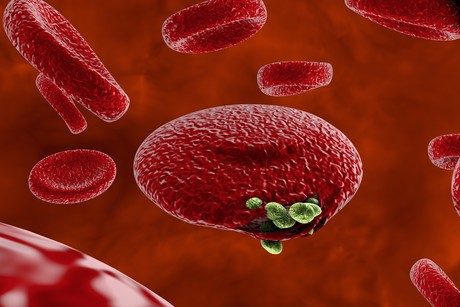The gene mutation that wards off malaria

Scientists at The Scripps Research Institute (TSRI) have led new research into a genetic mutation that may protect people from malaria, shedding light on how humans who live in close quarters with malaria-carrying mosquitoes may evolve defences against the disease.
Writing in the journal Cell, the researchers explained that a mutation in the gene PIEZO1, which codes for a pressure-sensing protein, was found to dehydrate red blood cells. In a mouse model, this mutation made it harder for the malaria parasite Plasmodium to infect red blood cells and cause cerebral malaria (a severe neurological complication of Plasmodium infection).
“This study is a good example of a host/pathogen arms race playing out in real time — this time with the host a likely winner,” said Kristian Andersen, an assistant professor at TSRI and co-author on the study.
This red blood cell dehydration condition, called hereditary xerocytosis, is uncommon in non-African populations and had never been the focus of a large-scale analysis — so the researchers were surprised to find it could be present in one in three people of African descent. Their findings suggest the mutation is much more common in areas where people have lived alongside selection pressure from malaria.
The PIEZO1 mutation is not the first adaptation linked to malaria resistance; people of African descent are also more likely to have a genetic condition called sickle cell anaemia, which makes it harder for Plasmodium to enter their red blood cells. Going forward, Andersen said, large-scale genomic association studies will be needed to confirm the PIEZO1 mutation’s role in malaria resistance.
Study leader Ardem Patapoutian added that his lab plans to learn more about the biological role of PIEZO1 and how mutations in the protein could affect other health conditions. Indeed, PIEZO1 as a pressure sensor is important for cardiovascular development and function, and its deletion is proposed to cause hypertension.
“The fact that we have a mouse model will make it seamless to test mechanisms behind any association we find in humans,” Patapoutian said.
ADHD may be linked with an increased risk of dementia
An adult brain affected by attention deficit hyperactivity disorder (ADHD) presents modifications...
Placebos appear to reduce PMS symptoms
Women affected by premenstrual syndrome (PMS) appear to experience less intense and debilitating...
Medicinal cannabis linked to long-term health benefits
As scientists find a way to improve the effectiveness of CBD, a separate study shows that...




